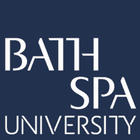About BA (hons) Film And Screen Studies in Bath Spa University
We want you to develop a critical understanding of film and screen theory and criticism and to appreciate the relationship between film, media and culture. But we also want to provide you with the conceptual tools for understanding how society and culture is mediated by cinematic, televisual and electronic images.
In choosing this course you’ll be starting on a journey of critical understanding of the institutions of film and screen production, distribution and exhibition. As part of this we’ll develop your understanding of reception and consumption practices in film and screen.
Film and Screen Studies aims to produce graduates who have an informed, critical and creative approach to both understanding film and screen in contemporary society and to their own forms of critical, reflective and communicative practice. You’ll develop intellectual, analytical, research and creative skills that will help you to prepare for employment and have the opportunity to engage in practical filmmaking projects if you wish.
Careers
The main focus of interest for our Film and Screen Studies graduates is the creative and cultural industries in the UK. These industries include advertising, journalism, publishing, film and film-related employments, television, radio and the heritage sector. However, there are also employment opportunities in local and central government and the voluntary sector.
Since 2011, employers such as BBC Bristol, Argonon and The Sheffield International Documentary Festival have recruited graduates from this course. Students have also gone into roles including Unit Assistant, Festival Assistant and Film Location Manager.
Work placements, industry links and internships
Work placements are available within the programme through the second year Work Placement model. They can also be facilitated on an extra-curricular basis through members of the teaching team.
Academic qualification equivalents
- Higher Secondary School Certificate/Indian School Certificate (standard XII) from the following boards CBSE/CISCE/WBCHSEB, with 65%, including grade C in at least five subjects.
English language requirements (one of the below):
- IELTS:Academic 6.0 overall This must include a minimum of 5.5 in Listening, Speaking, Reading and Writing.
- TOEFL iBT: A total of 72, to include a minimum 18 in Reading, 17 in Listening, 20 in Speaking, and 17 in Writing.
- PTE: This must include a minimum of 51 in Listening, Speaking, Reading and Writing.
Bath Spa University Highlights
| Type |
Public |
| Campus Setting |
Urban |
| Tuition Fees for International Students (full-time degrees in 2020-2021) |
13,700 GBP - 15,300 GBP (varies with the courses) |
| Campus Housing Capacity |
25% |
| Student Retention Rate |
89% |
| Scholarship Availability |
Yes |
| Applications Accepted |
Online |
| Work-Study |
Available |
| Intake Type |
Yearly |
| Mode of Program |
Full time and part-time |
Bath Spa University Average Tuition Fees And Other Expenses
International students joining the Bath Spa University are required to pay 70% of the tuition fees on or before arrival and commencement of the course. All payments should be made in £ sterling and the easiest way to make a payment is via Flywire. However, the payment can also be made through credit/debit card.
International students should open a UK bank account as soon as possible after arrival.
The estimated cost of attendance depends on several factors like the program applied for, tuition, books, fees, housing, dining, and personal items.
| Expenses In GBP |
Undergraduate (per annum) |
Graduate (per annum) |
| Tuition Fee for International Students (full-time courses) |
13,700- 15,300 (varies with the field of study chosen) |
13,700- 15,300 (varies with the field of study chosen) |
| Career and Professional Development Fees |
145 |
145 |
| Housing and Rooms |
8,412 |
8,412 |
| Health Insurance |
150 |
150 |
| Books and Supplies |
500 |
500 |
| Meals |
3,225 |
3,225 |
| Personal Expenses |
792 |
792 |
